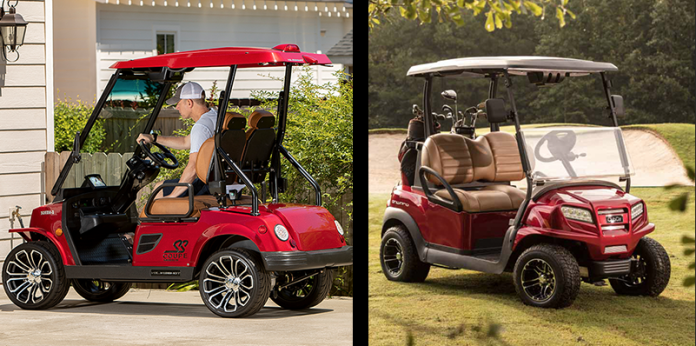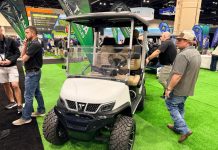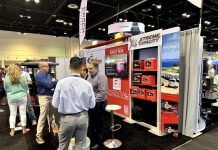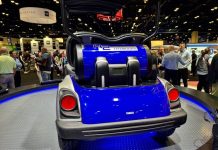
In a world where the phrases “unprecedented times” and “unlike anything before” have become increasingly commonplace due to the ongoing COVID-19 pandemic, more and more manufacturers have demonstrated a willingness to aid their consumers by offering financing terms that include deferred payments and even eliminated payments. This has been no more evident than in the automotive industry where Hyundai, Ford, General Motors and Nissan were some of the first to offer this service in order to ease the burden of quarantines, furloughs and layoffs.
In the ever-growing golf car industry, where personal transportation vehicles and low-speed vehicles are often financed because of their $10K+ price tags, manufacturers have begun to offer similar relief for their consumers. Club Car was the first to introduce options like “No Payments for 3 Months” and “0% Financing for 48 Months” on its new Onward models through May 31st, 2020. Similarly, Tomberlin now offers “No Payments for 90 Days” on all of its new E-MERGE models through June 30th, 2020.
The Club Car Onward is a consumer-ready derivative of Club Car’s long line of industry-leading fleet golf cars. It starts around $8K for the standard 2-passenger model and reaches over $16K for fully-equipped 4-passenger and 6-passenger models. The Onward boasts such features as a rust-proof aluminum frame, best-in-class suspension, smart charging, and unique styling.
The Tomberlin E-MERGE, which is more of a luxury sports car disguised as a golf car, also starts around $8K for the entry-level Revenge series and reaches over $20K MSRP for fully-equipped 6- and 8-passenger SS models. However, the E-MERGE comes standard with many street-legal features such as 4-wheel brakes, 3-point seatbelts, power steering, a DOT-rated glass windshield, and a top speed of 25 mph. The E-MERGE even comes with its own vehicle identification number for consumers who prefer to register their vehicle for state-approved, on-road use.
Both Club Car and Tomberlin manufacture lifted versions of their vehicles and both offer features like Bluetooth stereos, forward- and rear-facing passenger seating, and golf bag attachments for those who still want to hit the links.
More and more, these vehicles are becoming more like small, electric automobiles and less like golf cars of years past. Just 10-12 years ago, nearly all consumer golf cars were simply fleet cars refurbished by dealers or by the consumers themselves. Today, classifications such as Personal Transportation Vehicle (PTV), Neighborhood Electric Vehicle (NEV), and Low Speed Vehicle (LSV) are used to describe this growing category of vehicles designed to move about master planned communities, gated neighborhoods, vacation home properties, and even the streets of many towns across the country.
So, while the world’s new (hopefully temporary) normal has made discretionary purchases a little more calculated, several manufacturers have made these vehicles more affordable from a financing perspective. That’s a win for everyone involved.
You can learn more about Tomberlin’s offer here and Club Car’s offer here.







